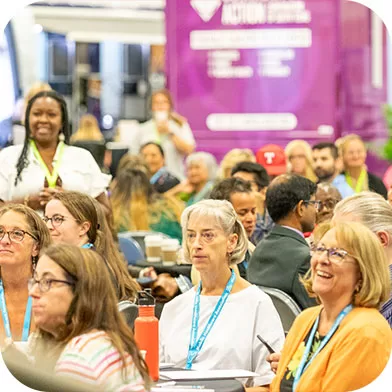Employing a Multi-level Advocacy Approach with Parents, School Systems, and State Legislators to Support Mobile HPV Vaccination in South Carolina

To address the issue of low HPV vaccination rates in SC, the MUSC HCC and Department of Pediatrics created a statewide community engagement-focused Mobile HPV Vaccination Program with funding from the HealthyMe/Healthy SC (HMHSC) program and the MUSC HCC. It provides HPV and other childhood vaccinations in school districts, health clinics, and other community settings throughout SC, focusing on children aged 9–18 years in primarily rural and medically underserved communities in SC, who are eligible for the U.S. Centers for Disease Control and Prevention’s Vaccines for Children (VFC) Program. To advocate with parents, the Program team provides a 20- to 30-minute, one-on-one educational session with parents who are considering vaccinating their children with the HPV vaccine. The HPV parental educational module and its accompanying pre-/post-educational session survey were developed by the National Cancer Institute’s (NCI’s) National Outreach Network Community Health Educator (NON CHE) program of the Comprehensive Partnerships to Advance Cancer Health Equity (CPACHE) programs. The 19-item survey, developed by the NCI, assesses the HPV vaccination status of the parents’ vaccine age-eligible child(ren), as well as the parents’ HPV and HPV vaccination knowledge, and their vaccination intentions for their children. To advocate with SC school systems, the Program staff work with the Director of the SC Department of Health and Environmental Control (SC DHEC) Adolescent Task Force, and the SC Immunization Coalition (SCIC), who linked the Program staff with the nurses at each of the schools in the participating counties of South Carolina. Regular meetings are held between the HPV Vaccination Mobile Unit Program staff and nurses within the school districts to make introductions and to plan the HPV vaccination event within each school system. Memoranda of agreement are developed with the school systems to outline the responsibilities of each school and the Program staff for each HPV vaccination clinic that take place at each school. Many of the school district leaders have identified the need for a virtual town hall HPV vaccination educational meeting prior to the HPV vaccine clinic in their district. The Town Hall meetings are developed collaboratively by the school district leaders, parent advocates, local pediatricians and pediatric nurses, students, and the Program team. To advocate with legislators in SC, the Program team is continuing a robust history of prior HPV vaccination legislative advocacy work led by the SC Cancer Alliance (the state’s comprehensive cancer control consortium); HPV Free SC, an advocacy organization comprised of clinicians, parents, and other community partners; and Every Visit is a Vaccine Visit (EV3), a project developed by the SC Immunization Coalition to promote vaccine confidence, help guide vaccine decision-making, and improve access to immunization education opportunities for healthcare professionals in underserved areas. While SC legislation excludes the HPV vaccination from school vaccination requirements, the state allows SC DHEC to offer HPV vaccination to adolescent students. As a result of these combined advocacy efforts, South Carolina’s HPV vaccination rates increased from the lowest in the U.S. HPV vaccination rates in 2016 to being on par with the U.S. HPV vaccination rates in 2020. Unfortunately, despite this monumental achievement, the COVID pandemic significantly inhibited the state’s HPV vaccination rates, and SC now ranks among the U.S. states with the lowest HPV vaccination rates, which was the rationale for developing the HPV Vaccination Mobile Unit. Continued advocacy with legislators is ongoing. Learning Objectives: Discuss the Program’s methods for engaging in HPV vaccination advocacy with parents, school districts, and legislators. Discuss the Program’s best practices for increasing the acceptance of the HPV vaccine. Provide solutions employed by the Program to increase the uptake of HPV vaccination in South Carolina.
Marvella Ford, PhD, Associate Professor, Population Science and Community Outreach and Engagement, Medical University of South Carolina, Hollings Cancer Center